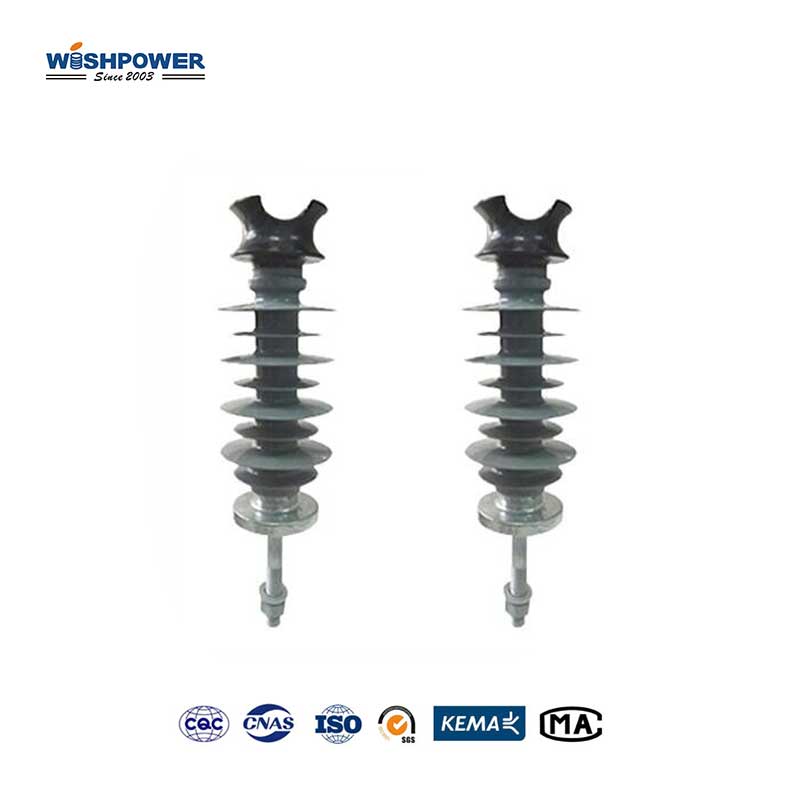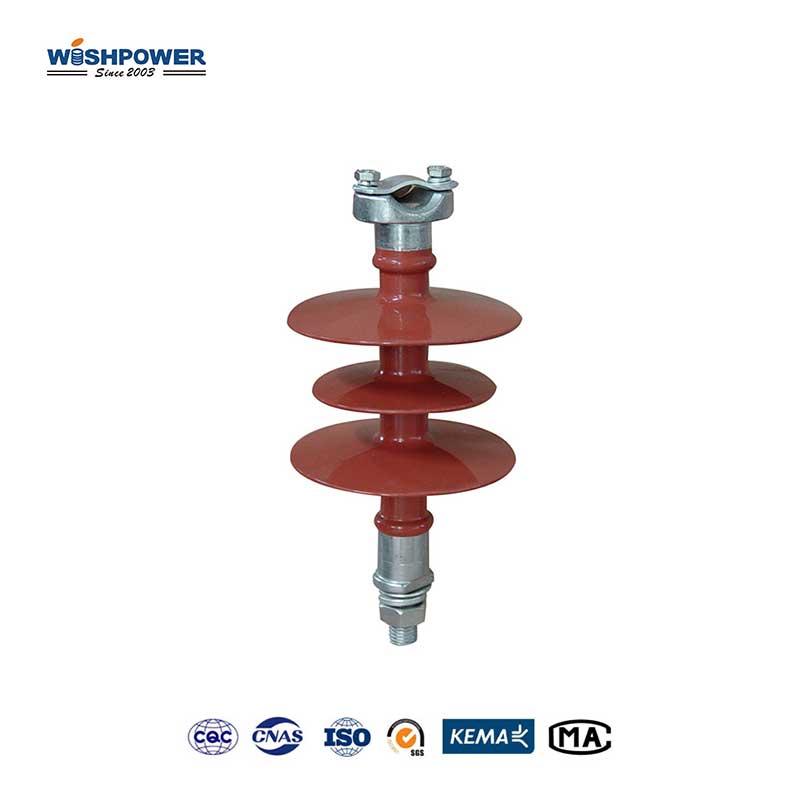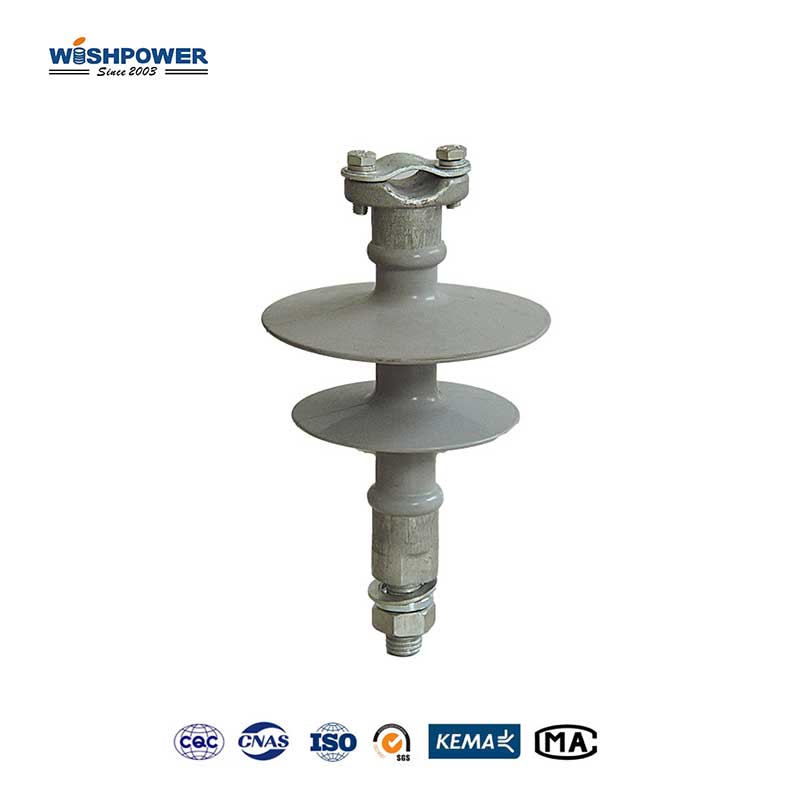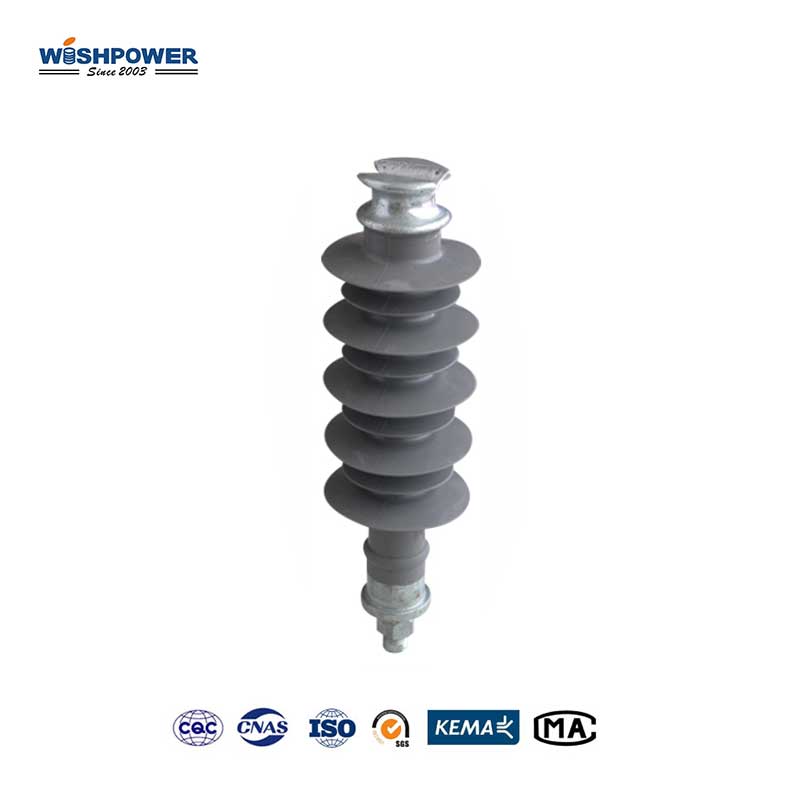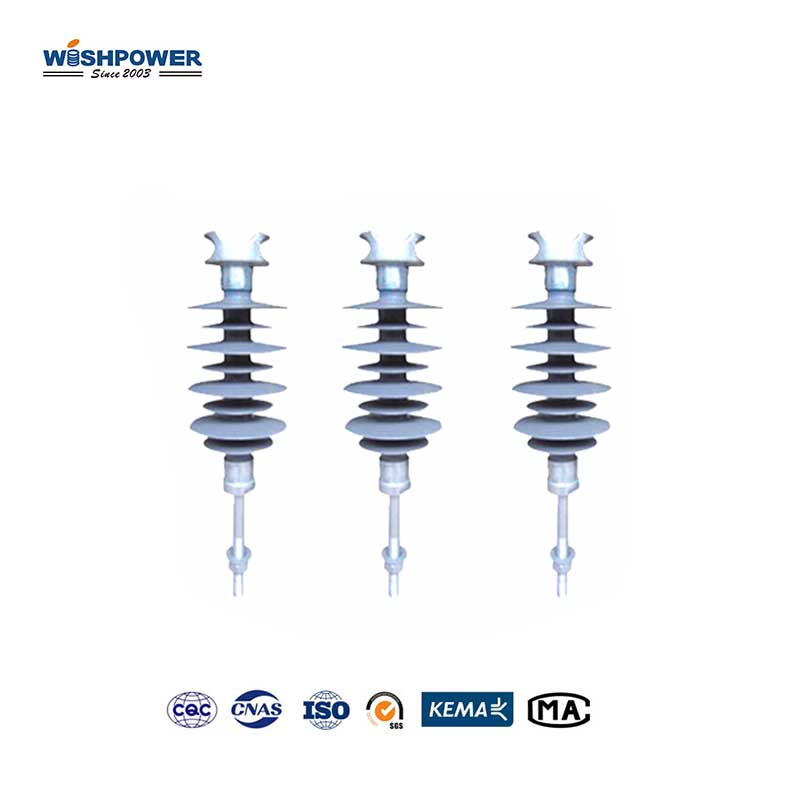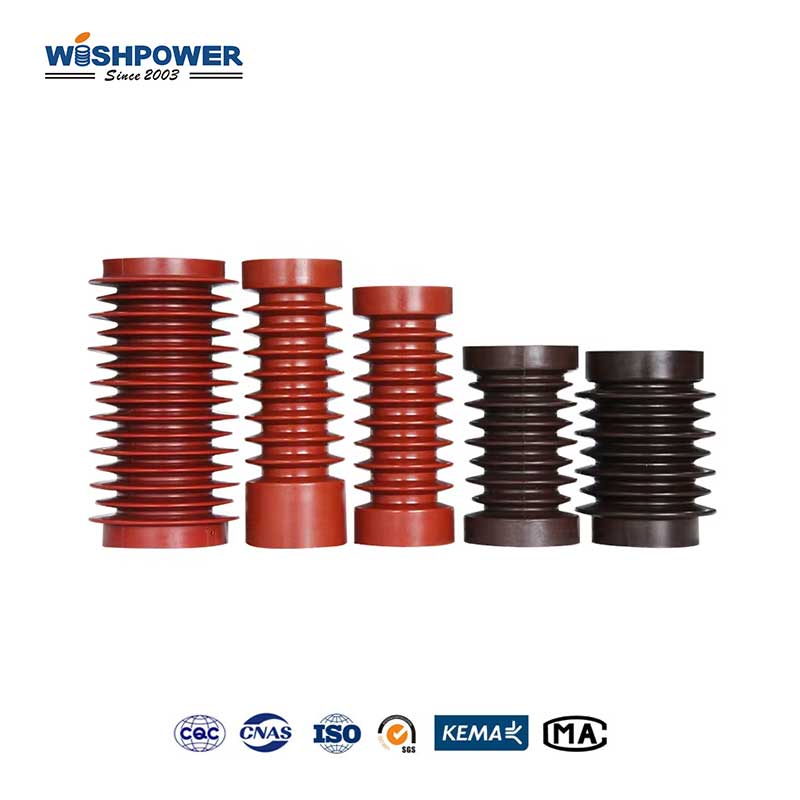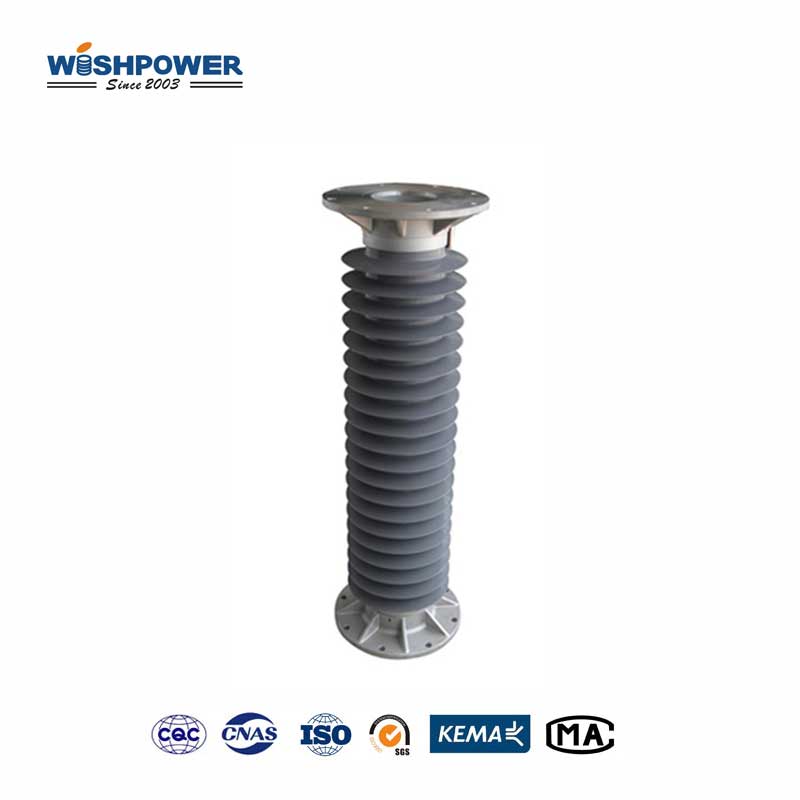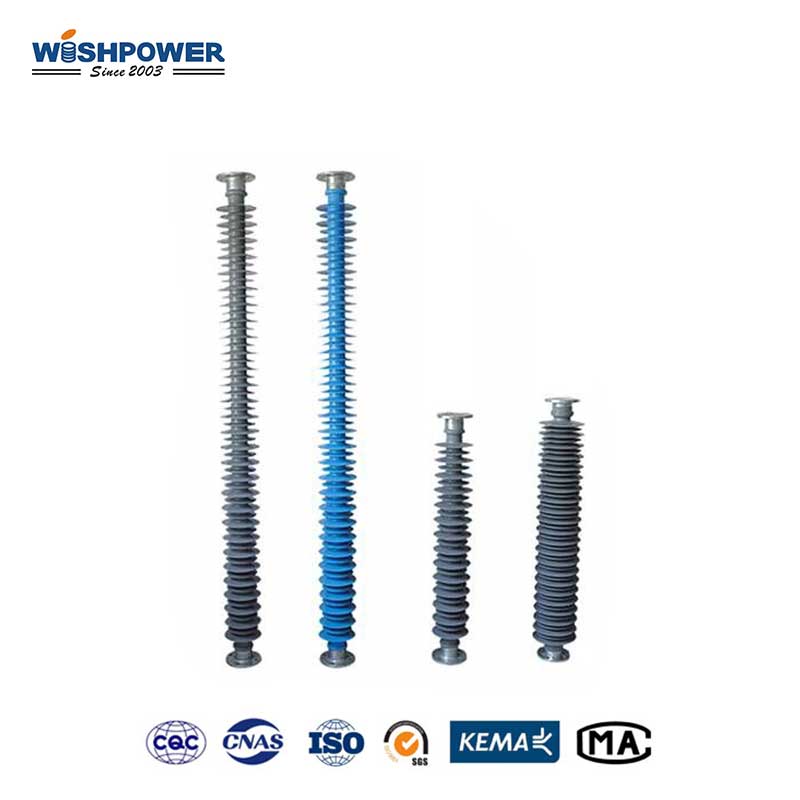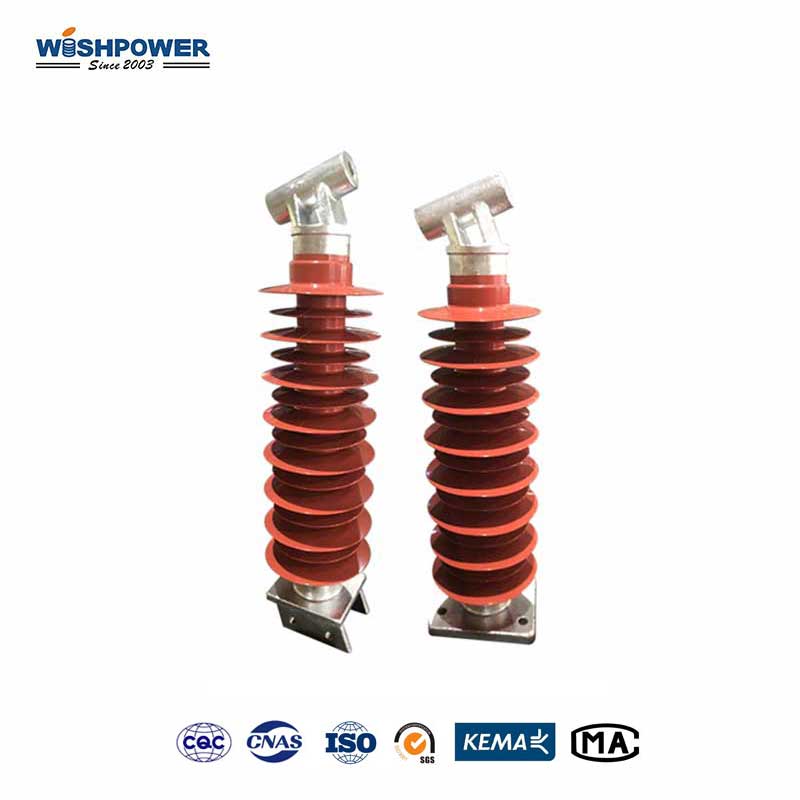Specification
| Type of Insulator |
FP-35(33)/(8/10/12) |
FP-35(33)/(10/12.5) |
| Specified Voltage |
35(33) kV |
35(33) kV |
| Specified Bending Withstand Load |
8/10/12 kN |
10/12.5 kN |
| Section Length |
560±5 mm |
665±5 mm |
| Min. Arcing Distance |
462 mm |
485 mm |
| Big Shed Diameter |
145 mm |
158 mm |
| Min. Nominal Creepage Distance |
1440 mm |
1800 mm |
| Steel Foot Specification |
M20/M22/M24 |
M20/M22/M24 |
| Lightning Impulse Withstand Voltage(Peak Value) |
≥230 kV |
≥230 kV |
| Power Frequency Withstand Voltage Min.Wet(RMS) |
≥95 kV |
≥95 kV |
| Reference Weight |
6.1 kg |
8.4 kg |
Composite pin insulators are made of glass fiber-reinforced epoxy resin and other materials. They are pin-shaped insulators used to support and insulate conductors in power transmission and distribution systems. Wishpower has rich professional experience and technology in the insulator industry. And can provide one-stop customized solutions for your company. Please get support through this website or info@wishpower.net

What is the Composite Pin Insulator?
Composite Pin Insulator is one of the essential components that are installed in Transmission and distribution systems, mainly for the support and insulation of conductors. It is not made of porcelain rather it is a contemporary product of composite material like fiberglass epoxy or silicone rubber material. This construction offers several advantages: it is very light but very strong with excellent endurance to rough environmental conditions such as pollution, water, and even ultraviolet light. The design is normally one-piece and produced with integral end connectors that comprise a threaded hole to screw into a metal pin which is usually placed on the utility posts or electrical pylons. This also ensures that mechanical support and electrical insulation to the structure are properly achieved which is very important in ascertaining an uninterrupted power supply. It is well known because of its excellent mechanical strength, electrical insulation, electrical tracking, and electro-erosion properties. Both overhead lines and distribution networks extensively use them as they are more dependable, and longer-lasting, which means they require less maintenance than routine compared to typical insulators.
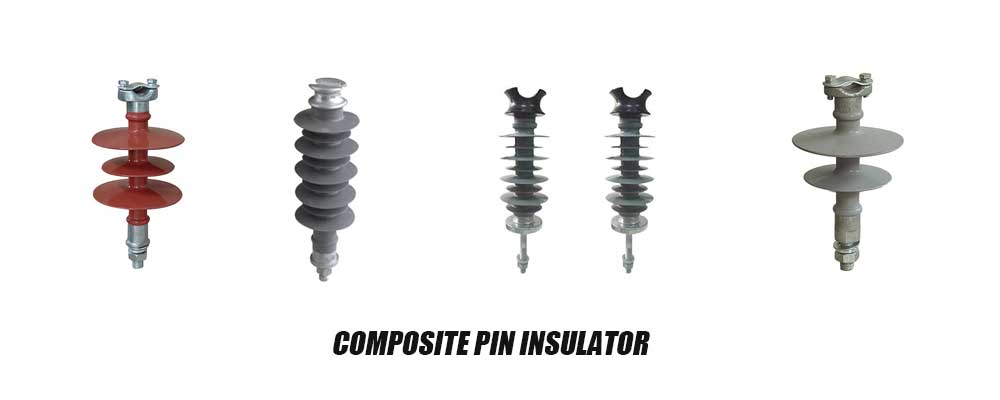
Unique Features
- Single-piece Design:
Pin post insulator is constructed as a single unit using composite materials like fiberglass reinforced epoxy. Offers exceptional strength and resilience, ensuring prolonged insulation reliability.
- Integrated Threaded Insert:
Incorporates a threaded insert for secure mounting onto a metal pin. Ensures stable installation and prevents loosening during operational conditions.
- Reinforced Metal End Fitting:
Equipped with a reinforced metal end fitting for enhanced mechanical robustness. Provides added support and durability, capable of enduring substantial mechanical loads.
Benefits
- Lightweight Construction:
Pin type insulator comes with an advantage in their lightweight as compared to porcelain insulators. Reduces labor in handling, installation, and even maintenance thereby helping companies reduce their costs.
- High Mechanical Strength:
Made of substantial composite material such as fiberglass reinforced epoxy. It offers outstanding mechanical strength and excellent load and mechanical shock carrying capacity without on the material or causing it to yield.
- Excellent Electrical Insulation Properties:
Intended to have high capability for electrical insulation and be capable of operating for a long time. It gives assurance for the safe utility and reduces the probability of electrical failure eventualities such as under dreadful weathering or transient over-voltage.
- Resistance to Pollution and Tracking:
Immune to contamination or harm to the external environment through tendencies such as pollution and water harm. A decrease in the chances of having surface cracks, and erosion means lasting insulation and long serviceability of the product.
- UV and Weather Resistance:
Designed to have a long-lasting capability against the harsh effects of ultraviolet (UV) light and environmental conditions. Overall stability and electrical characteristics are preserved over time for outdoor use in various climates and conditions.
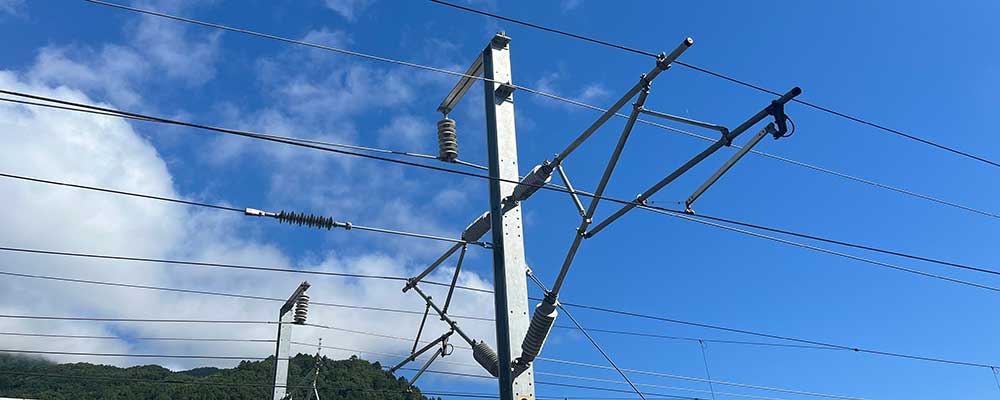
Application
- Overhead Power Transmission Lines:
Applied for suspension and electrical isolation of conductors in high-power transmission lines. It ensures dependable electrical insulation and mechanical support that is necessary for the consistent transfer of energy.
- Distribution Networks:
Fitted to distribution networks for providing power supply at lower voltage levels. Promotes generation and delivery of electricity without endangering the safety of human life and properties and without interrupting power supply too often or for long.
- Substations:
Used in substations for purposes of isolation and support of devices like transformers and switch gears among others. Prevents substation equipment and those components that are connected to it from electrical faults or other forms of deterioration that can alter their effectiveness or functionality.
- Railway Electrification Systems:
They are applied in railway electrification systems for overhead catenary wires purposes. Gives a steady electrical insulation together with appropriate mechanical strength that is paramount for rail transport systems.
- Industrial Applications:
Pin insulator is widely used in different industries where good electrical insulation and mechanical strength are needed. Optimises functionality and safety in the aspects of power distribution in industries and equipment usage.
About Us
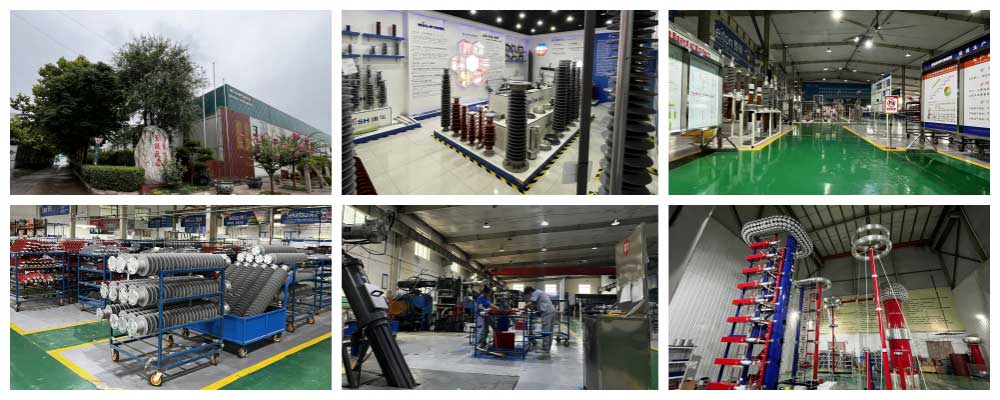
Certificate

Hot Tags: Composite Pin Insulator, Composite Insulator, China, manufacturers, ISO factory, wholesale, KEMA, high quantity, best, price, low to high voltage














